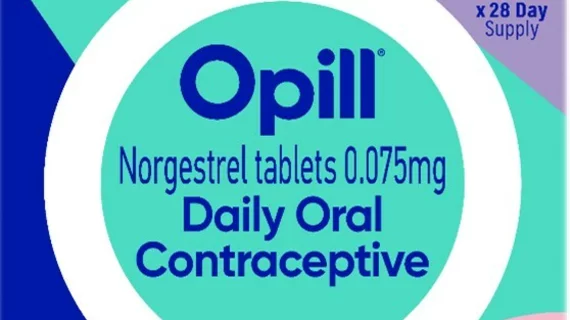FDA approves first nonprescription daily birth control in US
The U.S. Food and Drug Administration approved the first over-the-counter birth control pill in the United States on Thursday, July 13.
Opill (norgestrel) is a progestin-only oral contraceptive that can be taken daily and purchased without prescription at drug stores, convenience stores, grocery stores and online, according to the FDA’s release on its approval.
“Today’s approval marks the first time a nonprescription daily oral contraceptive will be an available option for millions of people in the United States,” said Patrizia Cavazzoni, MD, director of the FDA’s Center for Drug Evaluation and Research. “When used as directed, daily oral contraception is safe and is expected to be more effective than currently available nonprescription contraceptive methods in preventing unintended pregnancy.”
According to the FDA, unintended pregnancies account for nearly half of all pregnancies that occur in the U.S. Making Opill available to consumers without first having to see a healthcare provider for a prescription could reduce barriers to access and reduce the number of these unintended pregnancies, the administration suggested.
Opill is intended for daily use and is not an emergency contraceptive. It has been found to be 93% effective at preventing pregnancy when used as directed, which is in line with that of other oral forms of prescription birth control.
Similar to other prescription oral contraceptives, Opill should be taken at the same time every day to ensure its effectiveness. Its most common side effects are irregular bleeding, headaches, dizziness, nausea, increased appetite, abdominal pain and cramps or bloating. Although it has been approved to purchase without a prescription, the FDA notes that individuals with a history of cancer, particularly breast cancer, should consult with a physician before starting Opill.
The FDA granted the approval to Laboratoire HRA Pharma, recently acquired by Perrigo Company plc. The exact price and availability of Opill has yet to be determined, however, Paris-based HRA Pharma expects that it will be available to consumers in early 2024.
Read the FDA’s full statement on Opill’s approval here.

